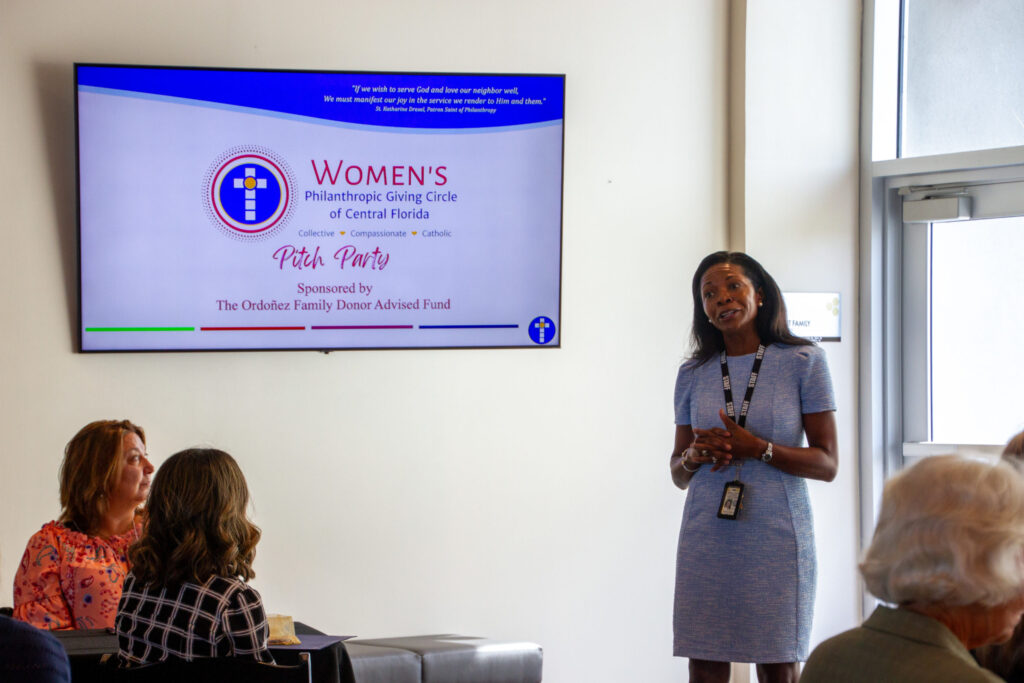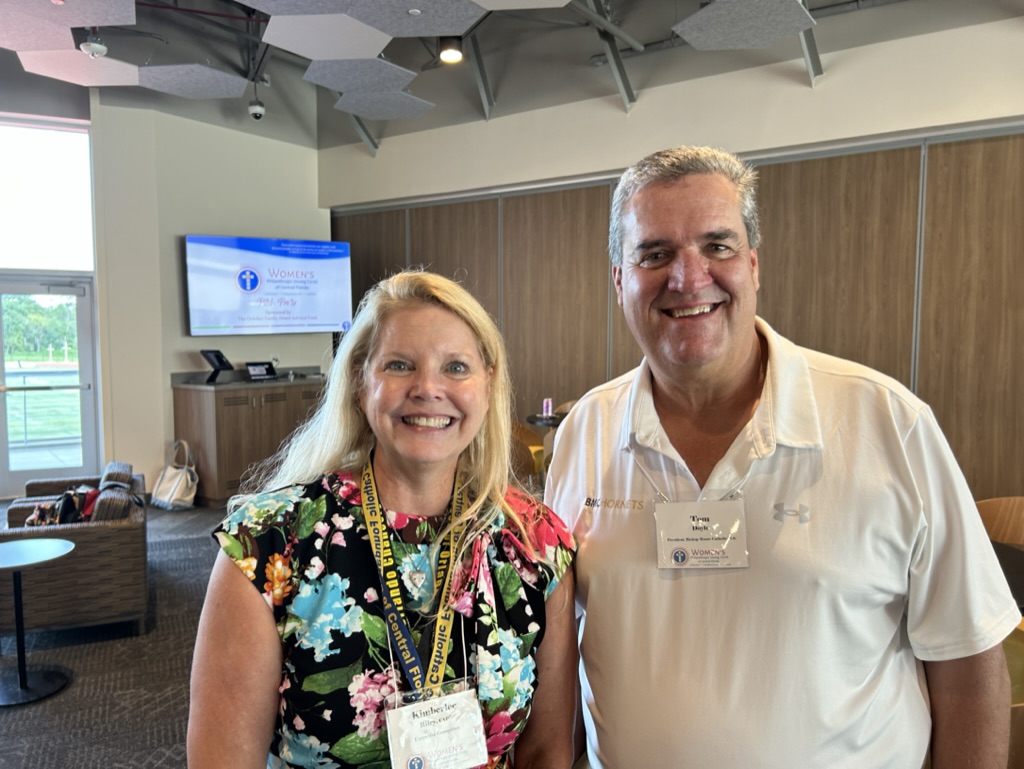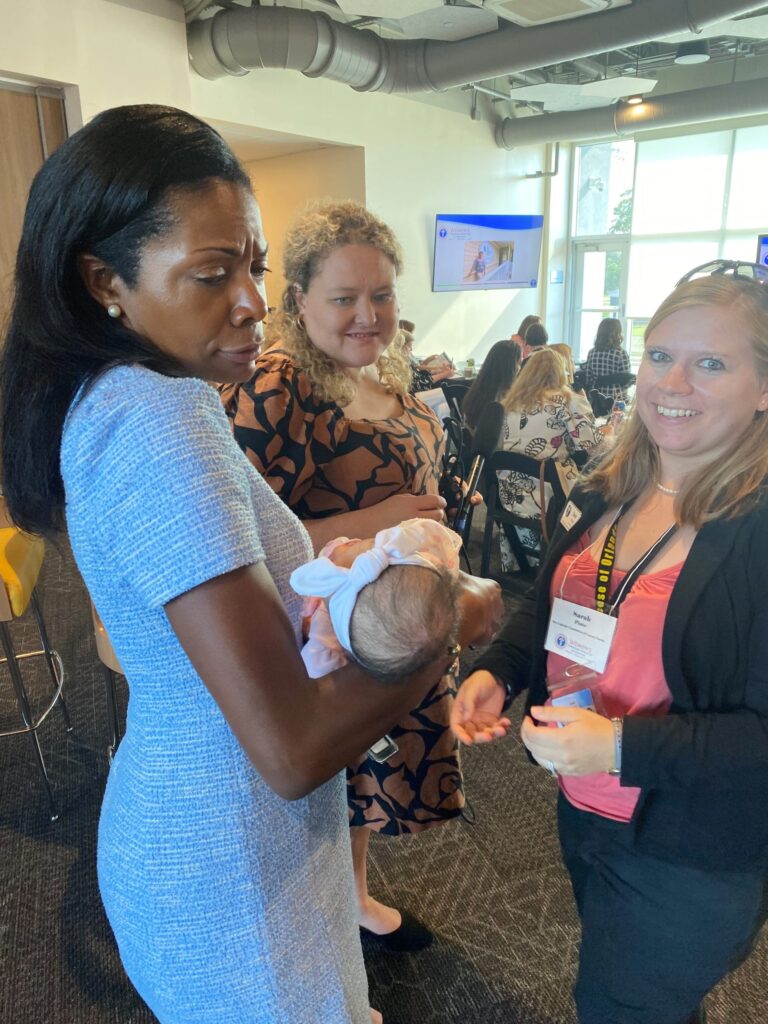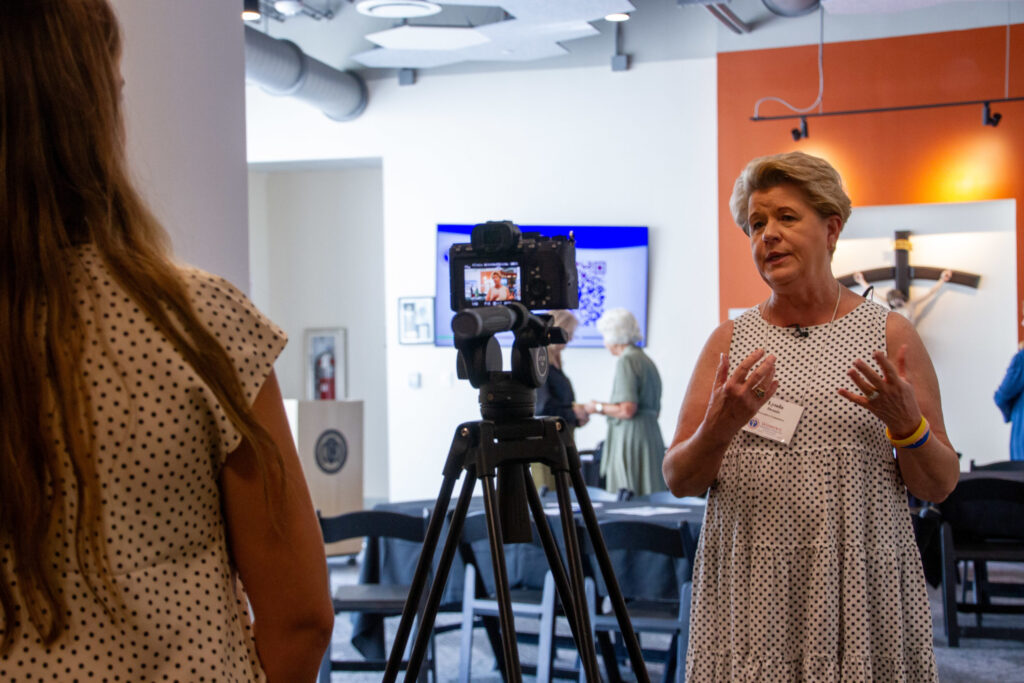Representatives from four area nonprofits presented their proposals to the Women’s Philanthropic Giving Circle this month as recipients of WPGC grant funding. Central Florida Diaper Bank, Harbor House of Central Florida, The Pregnancy Center of Sanford, and Samaritan’s Village are finalists to receive these grants to aid mothers and future mothers in need, victims of domestic abuse, and human trafficking. Our thanks to The Ordoñez Family Donor Advised Fund for sponsoring the event, and to the staff of Bishop Moore High School for hosting us.
Central Florida Diaper Bank -Strengthens the parenting abilities of families from low-income and/or rural households to ensure the health and wellbeing of their infants and toddlers. They help increase economic stability, reduce caregiver stress of these households, and reduce infant & child mortality rates that disproportionately affect underserved populations.
Harbor House of Central Florida –Provides safe shelter to adults and children, Harbor House also feeds residents in their kitchen 24/7 with over forty-six thousand meals expected this fiscal year. Harbor House empowers survivors to make decisions that lead to safety and independence. On any given day, more than half the residents in their shelter are children. Breaking the generational cycle of abuse while addressing immediate needs is the top priority.
The Pregnancy Center of Sanford –holds classes 2-3 times a year and offers area churches the curriculum to run a class in the fall and/or spring with their regular small group schedule. Their goal is to empower women with the skills and tools to deal with the grief and shame of their abortion choice(s); to stop the abortion cycle, because we know once a woman has had one abortion, she is at a greater risk to have another; and to facilitate healing and wholeness for women and their families through these class sessions.
Samaritan’s Village –aids victims of human trafficking to move toward sustainable independent living or transitioning into another next-step stage in their recovery; reclaim their lives and become catalysts for change in their communities; to sustain their livelihood in the community with minimal to no support, and to display altruistic behavior by way of helping others, reaffirming their worth in the community.





